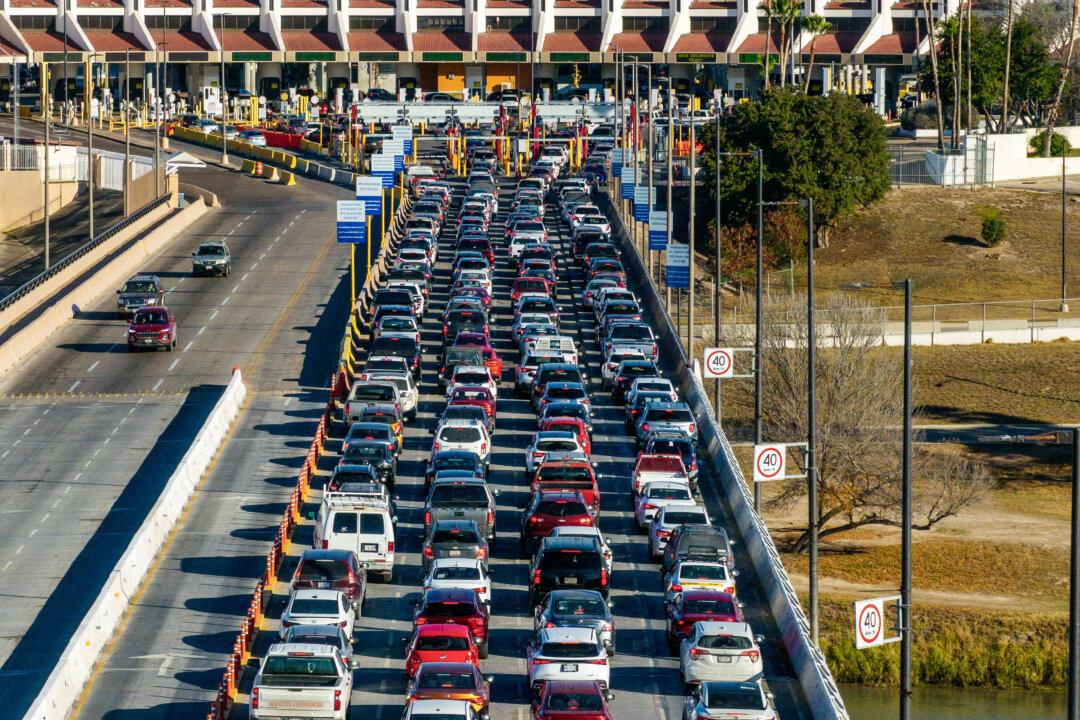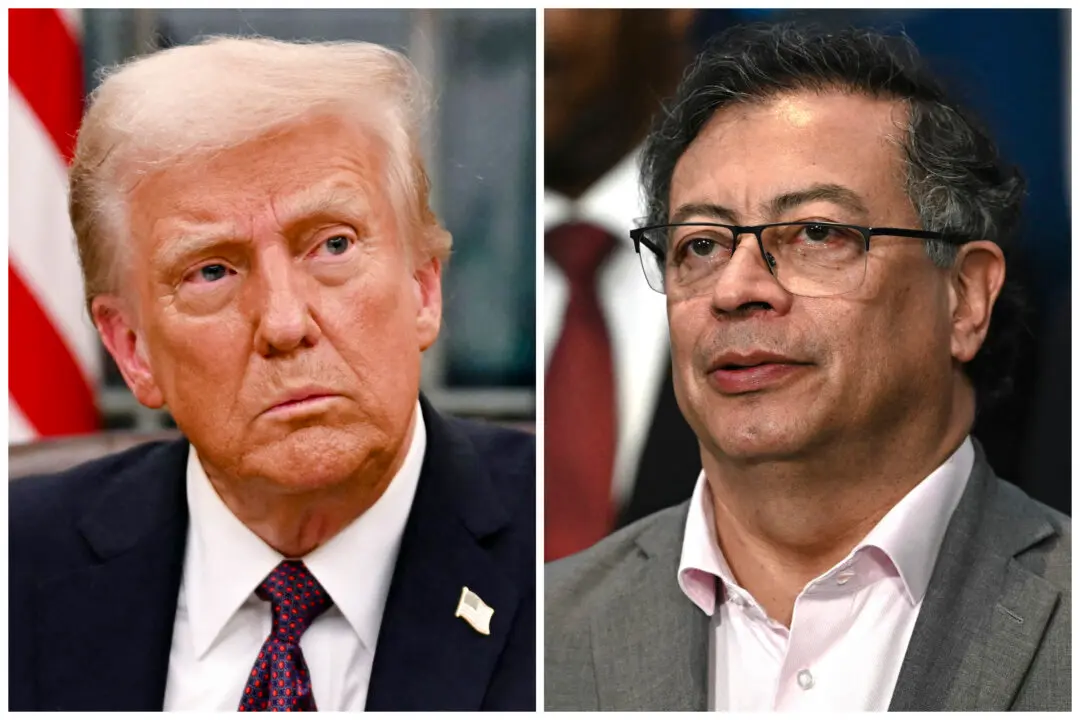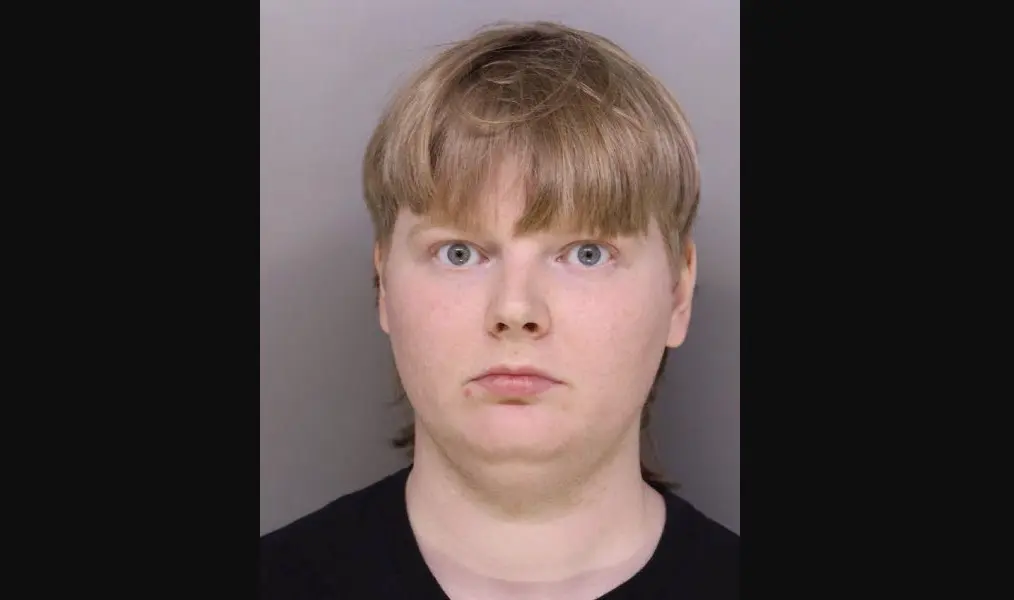President Donald Trump told reporters Sunday night that he would speak to the Canadian and Mexican leaders on Monday morning about his impending tariffs, which are scheduled to go into effect at midnight.
“I’m speaking with Prime Minister Trudeau tomorrow morning and I’m also speaking with Mexico tomorrow morning,” he said. “We put tariffs on. They owe us a lot of money, and I’m sure they’re going to pay.”





